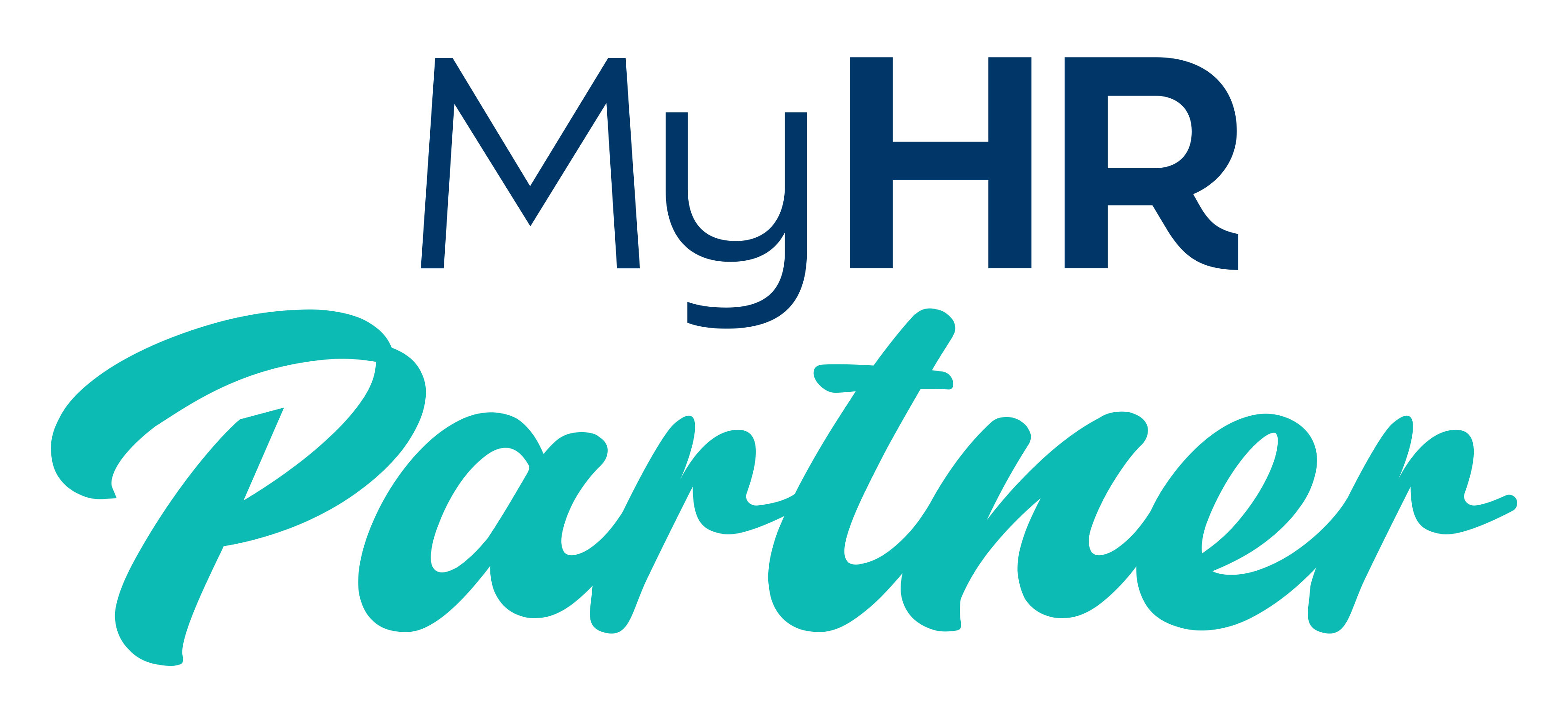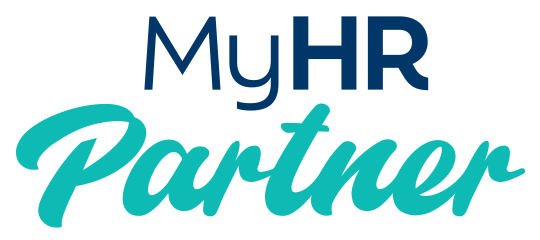Unlocking the Power of Human Resources: Welcome to Our Blog!
Discover HR updates, the latest trends, best practices, and innovative strategies shaping the world of Human Resources in Australia. From talent acquisition to employee engagement, we delve into the intricacies of HR management to empower organisations.
Let's navigate the dynamic landscape of HR together.

Podcast Episode 6: Navigating Employee Leave in Australia: What Employees and Workers Need to Know
Welcome to the My HR Partner podcast, where we dive deep into all things HR. Today, we’re discussing a topic that’s not only crucial for employees but also essential for employers to manage effectively – leave entitlements in Australia.
Understanding Leave Entitlements in Australia
Permanent employees get 20 days of annual leave, which is accrued on a pro-rata basis for part-time employees based on their regular work hours. Additionally, personal/carer’s leave (sick leave) is provided at a rate of 10 days per year, also on a pro-rata basis for part-time workers.
Managing Annual Leave
Managing annual leave is really important in a business. To do this, employers should establish a clear policy for requesting and approving leave, define notice requirements, and ensure leave isn’t excessively accrued.
Additional Annual Leave and Flexible Leave Arrangements
Some employers offer additional annual leave as an incentive, sometimes providing up to six weeks of leave. There’s also a trend toward flexible working arrangements, such as a four-day work week or unlimited leave, which can enhance employee satisfaction and productivity.
Additional Types of Leave
In addition to annual leave and personal/carer’s leave, Australian employees are entitled to various other leave types:
Community Service Leave: This includes unpaid leave for volunteering during natural disasters or emergencies for volunteers and paid leave for attending jury duty.
Parental Leave: While parental leave is unpaid, employers can choose to provide paid parental leave as an incentive.
Compassionate Leave: This is leave can be taken if:
a member of their immediate family or household dies, or contracts or develops a life-threatening illness or injury
a baby in their immediate family or household is stillborn
they have a miscarriage, or
their current spouse or de facto partner has a miscarriage.
Family and Domestic Violence Leave: Family and domestic violence leave is an entitlement that has recently been updated. Employees experiencing family or domestic violence are entitled to paid leave for this purpose. Employers should be aware of privacy considerations and provide support to employees in need.
Long Service Leave: Most employees’ entitlement to long service leave comes from long service leave laws in each state or territory. These laws set out:
when an employee is entitled to long service leave (for example, usually after 10 years)
how much long service leave the employee gets (this can vary depending on the state/territory)
In some states and territories long serving casuals are eligible for long service leave.
Public Holidays: Public holidays can be different depending on the state or territory you are in. There are also some local/regional public holidays
Leave Without Pay: This is not an entitlement but can be offered at an employer’s discretion.
Holiday Shutdowns
Businesses that shut down over the holiday season, such as Christmas and New Year, can request employees to take annual leave during these periods. It’s essential to have clear guidelines and policies in place regarding when and how employees take annual leave over a shutdown period.
Leave entitlements in Australia are a crucial aspect of employment that benefits both employees and employers. Employers should have clear policies and guidelines in place to manage and track various types of leave effectively.
If you’re looking for guidance on leave entitlements and other HR matters, feel free to get in touch with me. Visit my website at www.myhrp.com.au to explore the resources and services I offer to support businesses and employees alike.
Thank you for joining us on this episode of the My HR Partner podcast. Stay tuned for more valuable insights on HR-related topics. Have a great day!
For further expert advice on human resources or if you have any questions about anything HR related, get in touch.
Karen Hillen is your HR Partner, she helps businesses by providing HR support and advice services.
For the right HR support and advice, book a My HR Partner HR Advice call with Karen Hillen.
https://booking.myhrpartner.com.au/15minute-hr-advice-call
https://booking.myhrpartner.com.au/30minute-hr-advice-call
My HR Partner memberships provide 24/7 access to employment contracts, HR policies and documents, and HR advice calls. These services are tailored to the member’s needs and can be accessed on demand through phone or email for performance management issues, pay rates and Award advice.
Find out more about My HR Partner HR Hub membership here:
My HR Partner HR Hub Membership
Listen to the podcast here: https://myhrp.com.au/podcast-episode-6
Our Latest Blog Post

Podcast Episode 6: Navigating Employee Leave in Australia: What Employees and Workers Need to Know
Welcome to the My HR Partner podcast, where we dive deep into all things HR. Today, we’re discussing a topic that’s not only crucial for employees but also essential for employers to manage effectively – leave entitlements in Australia.
Understanding Leave Entitlements in Australia
Permanent employees get 20 days of annual leave, which is accrued on a pro-rata basis for part-time employees based on their regular work hours. Additionally, personal/carer’s leave (sick leave) is provided at a rate of 10 days per year, also on a pro-rata basis for part-time workers.
Managing Annual Leave
Managing annual leave is really important in a business. To do this, employers should establish a clear policy for requesting and approving leave, define notice requirements, and ensure leave isn’t excessively accrued.
Additional Annual Leave and Flexible Leave Arrangements
Some employers offer additional annual leave as an incentive, sometimes providing up to six weeks of leave. There’s also a trend toward flexible working arrangements, such as a four-day work week or unlimited leave, which can enhance employee satisfaction and productivity.
Additional Types of Leave
In addition to annual leave and personal/carer’s leave, Australian employees are entitled to various other leave types:
Community Service Leave: This includes unpaid leave for volunteering during natural disasters or emergencies for volunteers and paid leave for attending jury duty.
Parental Leave: While parental leave is unpaid, employers can choose to provide paid parental leave as an incentive.
Compassionate Leave: This is leave can be taken if:
a member of their immediate family or household dies, or contracts or develops a life-threatening illness or injury
a baby in their immediate family or household is stillborn
they have a miscarriage, or
their current spouse or de facto partner has a miscarriage.
Family and Domestic Violence Leave: Family and domestic violence leave is an entitlement that has recently been updated. Employees experiencing family or domestic violence are entitled to paid leave for this purpose. Employers should be aware of privacy considerations and provide support to employees in need.
Long Service Leave: Most employees’ entitlement to long service leave comes from long service leave laws in each state or territory. These laws set out:
when an employee is entitled to long service leave (for example, usually after 10 years)
how much long service leave the employee gets (this can vary depending on the state/territory)
In some states and territories long serving casuals are eligible for long service leave.
Public Holidays: Public holidays can be different depending on the state or territory you are in. There are also some local/regional public holidays
Leave Without Pay: This is not an entitlement but can be offered at an employer’s discretion.
Holiday Shutdowns
Businesses that shut down over the holiday season, such as Christmas and New Year, can request employees to take annual leave during these periods. It’s essential to have clear guidelines and policies in place regarding when and how employees take annual leave over a shutdown period.
Leave entitlements in Australia are a crucial aspect of employment that benefits both employees and employers. Employers should have clear policies and guidelines in place to manage and track various types of leave effectively.
If you’re looking for guidance on leave entitlements and other HR matters, feel free to get in touch with me. Visit my website at www.myhrp.com.au to explore the resources and services I offer to support businesses and employees alike.
Thank you for joining us on this episode of the My HR Partner podcast. Stay tuned for more valuable insights on HR-related topics. Have a great day!
For further expert advice on human resources or if you have any questions about anything HR related, get in touch.
Karen Hillen is your HR Partner, she helps businesses by providing HR support and advice services.
For the right HR support and advice, book a My HR Partner HR Advice call with Karen Hillen.
https://booking.myhrpartner.com.au/15minute-hr-advice-call
https://booking.myhrpartner.com.au/30minute-hr-advice-call
My HR Partner memberships provide 24/7 access to employment contracts, HR policies and documents, and HR advice calls. These services are tailored to the member’s needs and can be accessed on demand through phone or email for performance management issues, pay rates and Award advice.
Find out more about My HR Partner HR Hub membership here:
My HR Partner HR Hub Membership
Listen to the podcast here: https://myhrp.com.au/podcast-episode-6
We provide HR advice and support. We have trusted partners to assist with any employment law issues
outside of our scope.
More info
Suite 17, 741-743 Lawrence Hargrave Drive, Coledale NSW 2515
Suite 4, 133 Wharf Street, Tweed Heads NSW 2485
ABN 30 644 527 015
Our Latest Blog Post

Podcast Episode 6: Navigating Employee Leave in Australia: What Employees and Workers Need to Know
Welcome to the My HR Partner podcast, where we dive deep into all things HR. Today, we’re discussing a topic that’s not only crucial for employees but also essential for employers to manage effectively – leave entitlements in Australia.
Understanding Leave Entitlements in Australia
Permanent employees get 20 days of annual leave, which is accrued on a pro-rata basis for part-time employees based on their regular work hours. Additionally, personal/carer’s leave (sick leave) is provided at a rate of 10 days per year, also on a pro-rata basis for part-time workers.
Managing Annual Leave
Managing annual leave is really important in a business. To do this, employers should establish a clear policy for requesting and approving leave, define notice requirements, and ensure leave isn’t excessively accrued.
Additional Annual Leave and Flexible Leave Arrangements
Some employers offer additional annual leave as an incentive, sometimes providing up to six weeks of leave. There’s also a trend toward flexible working arrangements, such as a four-day work week or unlimited leave, which can enhance employee satisfaction and productivity.
Additional Types of Leave
In addition to annual leave and personal/carer’s leave, Australian employees are entitled to various other leave types:
Community Service Leave: This includes unpaid leave for volunteering during natural disasters or emergencies for volunteers and paid leave for attending jury duty.
Parental Leave: While parental leave is unpaid, employers can choose to provide paid parental leave as an incentive.
Compassionate Leave: This is leave can be taken if:
a member of their immediate family or household dies, or contracts or develops a life-threatening illness or injury
a baby in their immediate family or household is stillborn
they have a miscarriage, or
their current spouse or de facto partner has a miscarriage.
Family and Domestic Violence Leave: Family and domestic violence leave is an entitlement that has recently been updated. Employees experiencing family or domestic violence are entitled to paid leave for this purpose. Employers should be aware of privacy considerations and provide support to employees in need.
Long Service Leave: Most employees’ entitlement to long service leave comes from long service leave laws in each state or territory. These laws set out:
when an employee is entitled to long service leave (for example, usually after 10 years)
how much long service leave the employee gets (this can vary depending on the state/territory)
In some states and territories long serving casuals are eligible for long service leave.
Public Holidays: Public holidays can be different depending on the state or territory you are in. There are also some local/regional public holidays
Leave Without Pay: This is not an entitlement but can be offered at an employer’s discretion.
Holiday Shutdowns
Businesses that shut down over the holiday season, such as Christmas and New Year, can request employees to take annual leave during these periods. It’s essential to have clear guidelines and policies in place regarding when and how employees take annual leave over a shutdown period.
Leave entitlements in Australia are a crucial aspect of employment that benefits both employees and employers. Employers should have clear policies and guidelines in place to manage and track various types of leave effectively.
If you’re looking for guidance on leave entitlements and other HR matters, feel free to get in touch with me. Visit my website at www.myhrp.com.au to explore the resources and services I offer to support businesses and employees alike.
Thank you for joining us on this episode of the My HR Partner podcast. Stay tuned for more valuable insights on HR-related topics. Have a great day!
For further expert advice on human resources or if you have any questions about anything HR related, get in touch.
Karen Hillen is your HR Partner, she helps businesses by providing HR support and advice services.
For the right HR support and advice, book a My HR Partner HR Advice call with Karen Hillen.
https://booking.myhrpartner.com.au/15minute-hr-advice-call
https://booking.myhrpartner.com.au/30minute-hr-advice-call
My HR Partner memberships provide 24/7 access to employment contracts, HR policies and documents, and HR advice calls. These services are tailored to the member’s needs and can be accessed on demand through phone or email for performance management issues, pay rates and Award advice.
Find out more about My HR Partner HR Hub membership here:
My HR Partner HR Hub Membership
Listen to the podcast here: https://myhrp.com.au/podcast-episode-6
We provide HR advice and support.
We have trusted partners to assist with
any employment law issues outside
of our scope.
More info
PO Box 1079
Coolangatta QLD 4225
ABN 30 644 527 015







